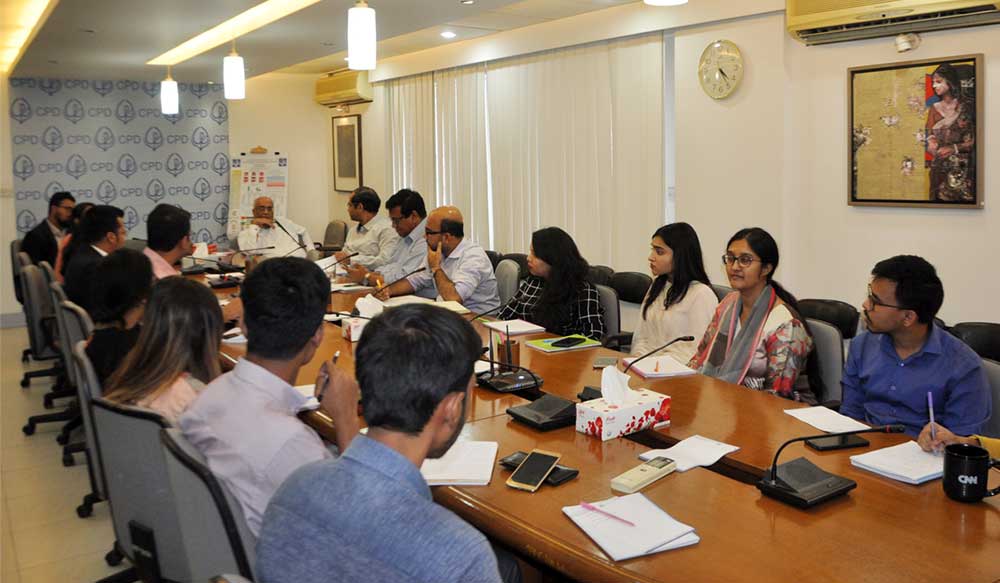
- Self-Employment – Pathway to Prosperity or Poverty : by Md. Al-Hasan
- Returns to Computer Use in Bangladesh – An Econometric Analysis : by Syed Yusuf Saadat
The role of the self-employed, particularly those with few skills, is of abiding concern to many developing economies. Wage differentials between the least skilled employees and the self–employed are rising, even as there is an aggregate decline in wage differentials.
Also, in the highly competitive labour market of Bangladesh, workers are unable to find the right jobs and employers are also unable to find the right workers. Such skills mismatch is a manifestation that education alone cannot bridge the gaps in the labour market. Computer skills, which can complement education, are becoming increasingly important.
 These views emerged at a Young Scholar Seminar Series (YSSS) session held at the CPD Dialogue room on 20 November 2019. Two presentations were made by CPD professionals at this YSSS session. Mr Md. Al-Hasan, CPD’s Research Associate made a presentation from on the paper titled “Self-Employment: Pathway to Prosperity or Poverty?” and Mr Syed Yusuf Saadat, another Research Associate from the CPD, made a presentation on the paper “Returns to Computer Use in Bangladesh: An Econometric Analysis”.
These views emerged at a Young Scholar Seminar Series (YSSS) session held at the CPD Dialogue room on 20 November 2019. Two presentations were made by CPD professionals at this YSSS session. Mr Md. Al-Hasan, CPD’s Research Associate made a presentation from on the paper titled “Self-Employment: Pathway to Prosperity or Poverty?” and Mr Syed Yusuf Saadat, another Research Associate from the CPD, made a presentation on the paper “Returns to Computer Use in Bangladesh: An Econometric Analysis”.
While presenting, Mr Al-Hasan mentioned how he used Bangladesh’s nationally representative Labour Force Survey (LFS) data to investigate the real wage growth of the self-employed. He found that wage differentials between the least skilled employees and the self–employed are rising, even as there is an aggregate decline in wage differentials between 2005 and 2016. The main reasons are barriers such as inadequate aggregate demand, and the low human capital, both in level and composition. Mr Al-Hasan suggests the need for government intervention to change the skills composition, specifically for those least skilled.
Mr Saadat presented on how he estimated the returns to computer use using the national LFS dataset. It was found that workers who could use computers earned 17 per cent more than workers who could not use computers. Additionally, the returns to education and experience were estimated to be 3 per cent and 2 per cent respectively. This implies that computer skills were as valuable as 5 years of education or 8 years of experience, assuming that the returns to all three were constant over time. He recommended for allocating government resources for computer training, and also advocated for individual investment towards learning computer skills.
CPD senior researchers and professionals were present at the session and took part in the discussion with their questions and opinions on the presentations.


